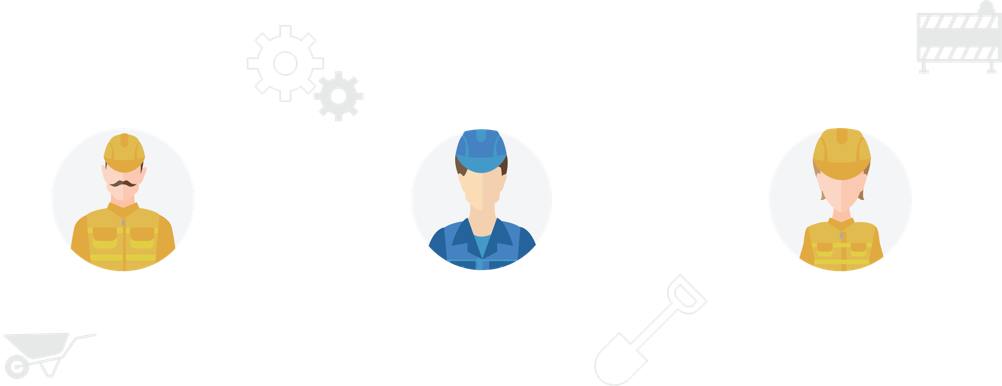
Sheet metal workers fabricate, assemble, install, and repair sheet metal products.
Job Related Skills, Interests and Values
- Reading drawings and sketches of work to be done; laying out, measuring, and marking sheet metal according to drawings or templates
- Operating light metal working machines such as shears, brakes, punches, and drill presses to cut, bend, punch drill, shape, or straighten sheet metal
- Operating laser or plasma cutting equipment to cut sheet metal
- Grinding and buffing seams, joints, and rough surfaces
- Fitting and joining sheet metal parts using riveters, welding, and soldering to fabricate products like ventilation shafts, eaves troughs, partition frames, ducting, roof decking, and sheet metal buildings
- Working alone with minimal supervision to get the job done
What Preparation and Training Do You Need?
- Grade 10 is the legal minimum, but a high school diploma is often required; math, science, and English credits recommended
- Completion of a 9,000-hour apprenticeship, including a combination of on-the-job and in-school training
- Exam to obtain Certificate of Qualification
What's Your Future as a Sheet Metal Worker (308A)?
- May work on outdoor construction projects or inside on manufacturing or shop work
- Specializations include ornamental work, weather-proofing, air conditioning, and systems balancing
- Skill levels continually elevated due to technological and material advances
- Often hired by construction firms, steel producers, stamping press and coated metal products companies, and aircraft and parts manufacturers
Wage Rate
Apprentice wage increases with skill and experience. Fully qualified workers earn an average of $35.00-$44.00 per hour.
Self-Rating
Sheet Metal Worker (308A)
| Ask Yourself: | Yes | No |
|---|---|---|
| Can you look at drawings and blueprints and visualize how things come together? Do you have good manual dexterity? | ||
| Are you good at using numbers and performing calculations? | ||
| Can you lift 50lbs comfortably? | ||
| Are you able to follow Health & Safety guidelines? | ||
| Do you enjoy learning about new technology and materials? | ||
| Would you enjoy interacting with site supervisors, customers, suppliers, co-workers and other tradespeople to get the job done? | ||
| Do you have excellent time-management skills? Are you an organized person? |
If you checked YES to the majority of these questions, a career as a Sheet Metal Worker (308A) may be for you!
You might want to look at these similar trades as well;
- Machinist
- Tool & Die Maker
- Refrigeration & Air Conditioning Systems Mechanic
Low Rise Residential Sheet Metal Installers install sheet metal air-handling and ventilation systems in low-rise residential buildings without common air-conditioned areas. Specific work settings include self-contained single-family dwellings like detached, semi-detached, town, and linked homes with wood frame construction.
Gas Technicians install, repair, maintain, and inspect gaseous fuel pipelines and appliances in homes, commercial buildings, or industrial settings.
Construction Boilermakers build, repair, test, and maintain all types of boilers, tanks, and pressure vessels. They also perform all types of structural and plate work on dust, air, gas, steam, oil, water, and other liquid-tight pressure vessels. Work may occasionally be done on scaffolds to repair and maintain existing boilers.
Metal Fabricators (Fitters) make and repair parts used in the construction of buildings, bridges, tanks, towers, boilers, pressure vessels, and other structures. They lay out, cut, and fabricate structural steel, plate, and different ferrous and non-ferrous metals used in the manufacturing and construction industries.
Automotive Painters, also known as Refinishing Specialists, are involved in motor vehicle damage appraisal, surface preparation, minor damage repair, masking, colour matching, priming, and mixing paint and top coating.
General Machinists are skilled craftspeople who set up and operate precision metal cutting and grinding machines including lathes, milling machines, drills, shapers, boring mills, and grinders. They may use equipment to manufacture, install, operate, adjust, and repair machine tools and other machines in common use.
Blacksmiths forge and repair metal parts; make striking and cutting tools; make, sharpen or harden drills; chisel; and perform custom work including ornamental railings, gates, grilles, and furniture.
Tool & Die Makers are skilled craftspeople that make, repair, and modify custom-made, prototype, or special tools, dies, jigs, fixtures, and gauges to very specific and precise dimensions. The work involves the operation of lathes, grinders, and milling and boring machines.